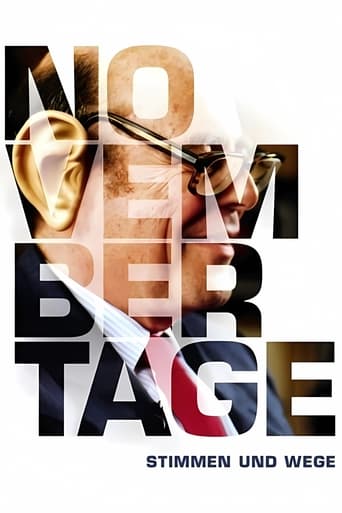motorino
Ophüls' worst moment as a director. Makes Michael Moore look shy and modest in comparison. Interviews are an annoying, uneven mix of shameless ass-kissing, objective questioning, and slimy backstabbing, often painful to watch. Director seems overwhelmed by the complexity of the problems. More than once he creates embarrassing moments through his lack of insight and preparation by pushing ridiculous, unrelated agendas. His silly outbreaks and dumb remarks leave viewer stunned; probably wants to parade his Jewish playfulness to set himself apart from stiff Germans who try to discuss their history in earnest. Far from being a masterpiece or even a decent effort. Film creates some strong, true moments but is altogether pathetic and annoying for its shocking lack of historical perspective, political understanding, and questioning skills. Heiner Müller, one of East Germany's greatest minds, does not look good kissing up to Ophüls. Hats off to Kurt Masur (and to Ophüls for putting it in the movie).
gaga75
Marcel Ophüls, a frankfurt-born jew who emigrated to England, draws a genuine picture of the leadership and people in the gdr. By offensively pitting the heads of the gdr-leadership against each other, by relentlessly entangling them in their own lies and inconsistencies, he reveals the true face of the real existing socialism - its mediocrity, its narrow-mindedness, its lack of taste and its lack of character.It's amazing to see how Ophüls adresses the former gdr leaders in such a direct and concise manner and how these people - who are used to think in stencils and who are talking in empty phrases - are nearly paralysed by this approach. Ophüls never accepts dodgy answers, instead he persistently keeps asking.Ophüls arranges his observations and interviews in an adept way. No other documentary about the so called "wende" (the fall of communism) shows the essence of the socialist societe like this masterpiece!

